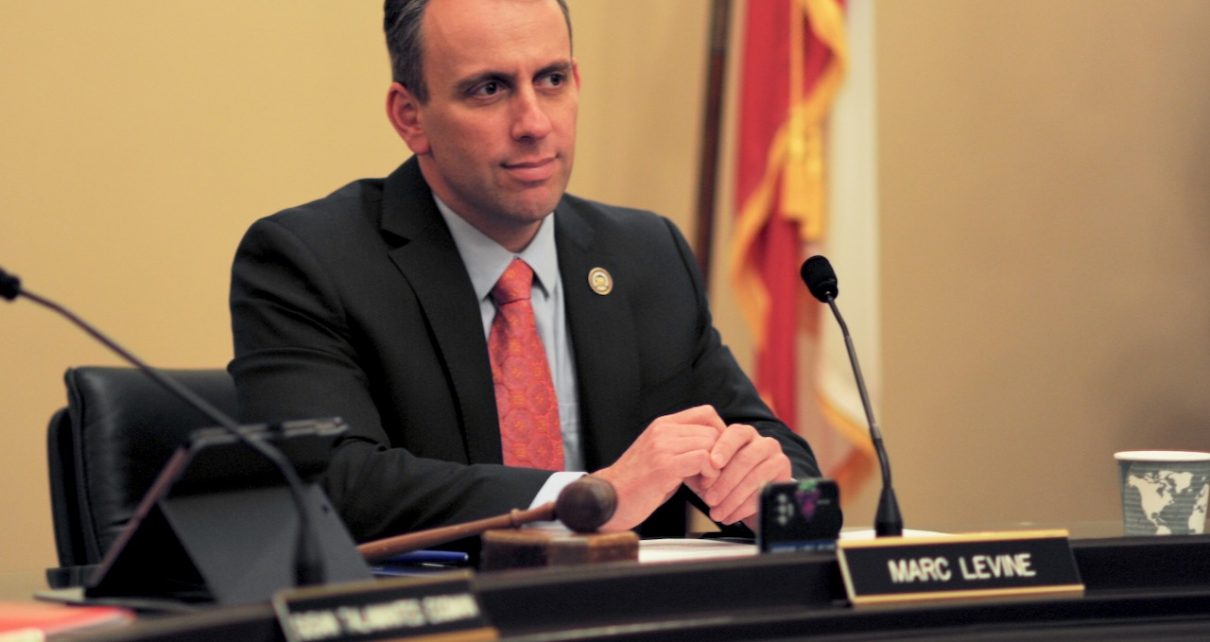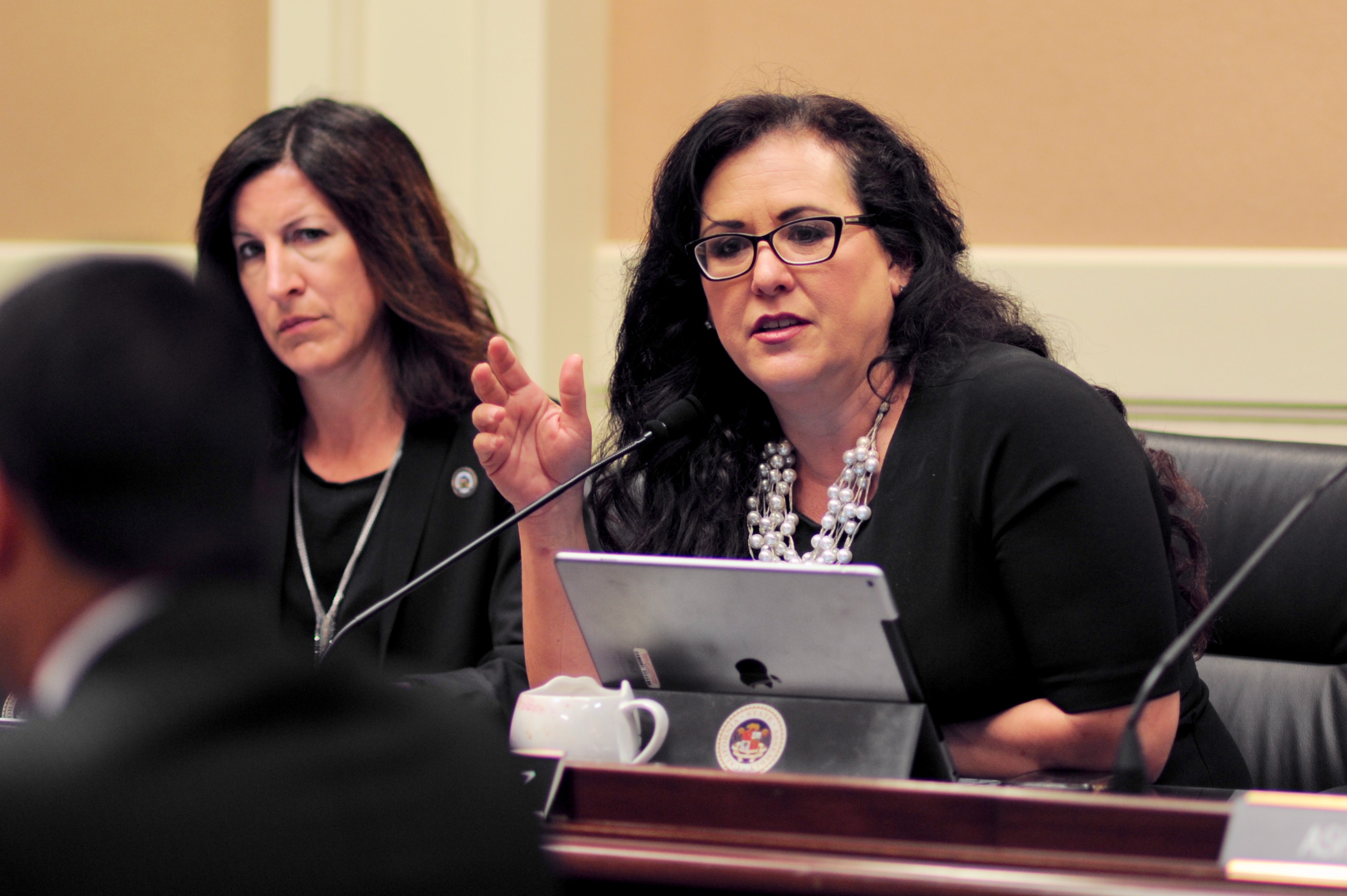
Assemblyman Marc Levine. (Photo: Kevin Sanders for California Globe)
AB 5 Exemption Bill For Seasonal Live Theater Workers Given New Committee Assignment
Nonprofit arts generated $4.5 billion in economic activity, 132,705 jobs, and $431.5 million in state and local government revenue in just 15 CA counties
By Evan Symon, March 8, 2021 2:52 pm
An Assembly bill that would fracture AB 5 worker classifications by adding an exemption for seasonal live theater workers was assigned to the Assembly Labor and Employment Committee over the weekend.
Assembly Bill 1227, authored by Marc Levine (D – San Rafael), would reclassify seasonal live theater workers as independent contractors. Rather than use the Dynamex case decision to determine if workers are contractors or employees that was decided on in AB 5, AB 1227 will use the older Borello case to determine worker classification. This will do away with the AB 5 ABC test in favor of the Borello system, which takes into account many more factors.
The theater industry, like many creative industries, has fought hard against AB 5 since it was first introduced as legislation in early 2019. Theaters in particular, typically don’t have much reserve money, as other industries do through investors, with many barely making enough money to cover expenses. Having to hire workers as employees (rather than independent contractors), and COVID-19 shutdowns since last year, has severely hurt theaters, with many on the brink of closing, even with substantial relief and Paycheck Protection Program (PPP) aid divested among them.
Assemblyman Levine wrote AB 1227 to provide flexibility for seasonal live theater actors, musicians, and stagehands, while also allowing pre-AB 5 pay structures to assist theater and theater company owners. As workers would be more flexible under the bill, it would also help productions come back from the COVID-19 pandemic in a safe, gradual manner.
“California live theatre inspires us, provides needed cultural enrichment and has a significant impact on our state’s economy,” said Assemblyman Levine in a statement last week. “As we look toward a post-COVID future, AB 1227 will be an important part of ensuring the long-term sustainability of seasonal live theatre across the state. Theatre operators, actors, musicians and crew members agree that they need the flexibility provided in AB 1227. I look forward to working with the creative arts community to help raise the curtain on this issue that will help live theaters thrive across California.”
“We don’t want to strip away important protections in the workplace,” added the Assemblyman in a follow-up statement. “I hope that we can return to live theater soon and safely. That requires that we plan for it but also in a way that provides flexibility to theater owners.”
Levine’s office also noted that AB 1227 would have considerable impact, citing a 2017 report from Americans for the Arts, Arts & Economic Prosperity that found nonprofit arts and cultural production generated $4.5 billion in economic activity, 132,705 jobs, and $431.5 million in state and local government revenue in just 15 of California’s 58 counties.
“This is big,” Georgina Wright, a theater owner in Los Angeles County explained to the Globe. “AB 5 really hurt us because of how rigid it was in what we could and couldn’t do. We had to let some people go because we couldn’t hire everyone as an employee because of how expensive it was. Whoever wrote that law obviously doesn’t know the intricacies of how theaters operate, like seasonal productions or productions lasting only a few months.”
“COVID also hurt us badly. I won’t go into details, but there were a few times last year when it was nearly the end for us if it wasn’t for an emergency donation or a government program kicking in.”
“This bill would help us so much. For actors and everyone, we can finally work as a real theater company again when it comes to pay and work hours. And it will also allow us to slide back into live performances when it is allowed. Rather that paying a huge block and coming back all at once, it will be normal theater payments and be allowed to come back safely. For everyone, even the audience, this is a no-brainer.”
“And given how a Democrat [Assemblywoman Lorena Gonzalez (D-San Diego)] wrote AB 5 in the first place, I’m pleasantly surprised to find another Democrat willing to break it up to help save us.”
Other theater executives also praised the bill.
“This legislation will help community theatre get back on a sounder financial footing when we are able to reopen after the pandemic is over,” noted Katie Wickes, President of the Board of Directors for the Marin Musical Theater Company. “We are grateful that Assemblymember Levine stepped up to support us.”
As of Monday, there has been no opposition against AB 1227, but it is expected that many pro-AB 5 lawmakers are expected to challenge it in the upcoming bill discussions in the Assembly Labor and Employment Committee.
Committee consideration is expected to commence as soon as late March.
- Paper V. Plastic - April 20, 2024
- Two More Insurance Companies Pull Out Of California - April 19, 2024
- San Francisco Files Lawsuit Against Oakland Over Airport Renaming - April 19, 2024




